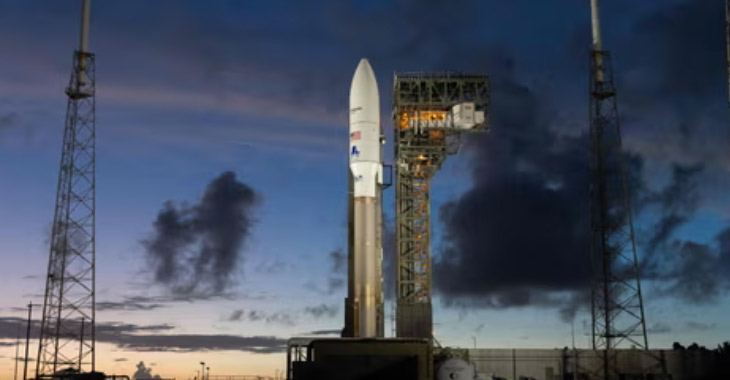Amazon, in its quest to establish a competitive broadband network, successfully launched its first test satellites via United Launch Alliance’s (ULA) Atlas V rocket on Friday. This marks the initial step in a comprehensive program aimed at enhancing global internet coverage with a constellation of 3,236 satellites orbiting Earth.
Amazon’s ambitious plan targets the commencement of internet services by the close of next year, entering into competition with SpaceX’s Starlink broadband network. While SpaceX, founded by Elon Musk, has a substantial lead in this space, Jeff Bezos’ Amazon, equipped with its rocket company, Blue Origin, is determined to challenge the status quo.
SpaceX initiated its Starlink program by launching test satellites in 2018, followed by the deployment of the first operational satellites in 2019. Since then, SpaceX has conducted over 5,000 Starlink launches, utilizing its own Falcon rockets from launch facilities in Florida and California.
Notably, Europe’s Eutelsat OneWeb is also actively deploying internet satellites and currently has around 600 in orbit.
Originally, Amazon intended to launch its satellites on ULA’s debut Vulcan rocket. However, due to technical issues delaying the Vulcan’s launch until at least the end of this year, Amazon opted for the well-established Atlas V rocket for this mission.
Under the licensing agreement with the Federal Communications Commission (FCC), Amazon is obliged to have at least half of its planned satellites in operation by 2026, with the entire constellation set to be operational by 2029. Amazon has secured a total of 77 launches from ULA, Blue Origin, and Europe’s Arianespace to facilitate this ambitious initiative.


